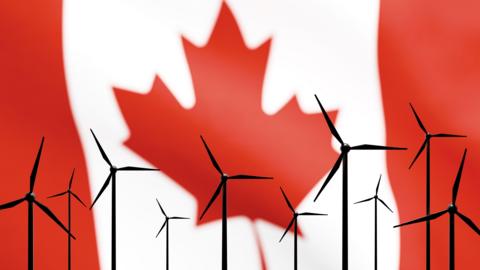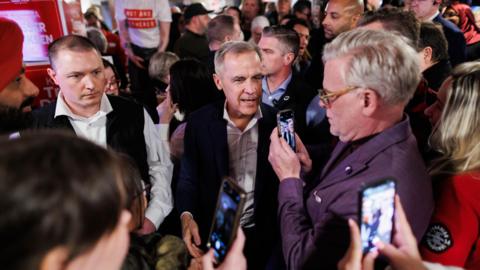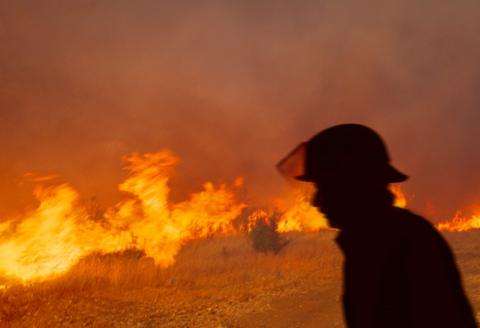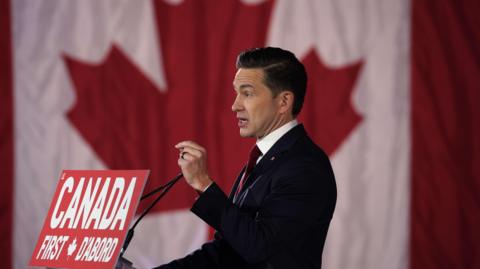In that vote, there was a consensus between the two major parties that Canada should rapidly transition to a green economy, with a net-zero emissions law passed in June of that year.
That sense of unity is now long gone.
Carney, who became leader of the Liberals and prime minister in early March, has a long track record as an international champion of climate change.
As well as being a governor of the Bank of England, he was a UN Special Envoy on climate action and finance and was co-chair of the Glasgow Financial Alliance for Net Zero, one of the big outcomes of COP26.
However, his first action as prime minister was to repeal the consumer carbon levy.
The tax - a signature climate policy of the governing Liberals - was introduced in 2019, and placed an added charge on consumers using coal, oil or gas products.
It was unpopular, and for the Conservatives it became an easy target of blame for the rising cost of living in recent years. Poilievre even sought to paint his rival as "Carbon Tax Carney".
Some observers believe that cancelling the tax was a smart political move, others feel it was a mistake.
"By making one of your first moves the removal of the carbon price, you're accepting this narrative that climate change policy costs us too much money and isn't good for us, when, in fact, that is not the case," said Catherine Abreu, who is director of the International Climate Politics Hub and a member of Canada's Net Zero Advisory Body.
"I think there's a missed opportunity here to set a new narrative framework around this in the election."
Carney's election pitch on energy is to turn Canada into "a world leading superpower in both clean and conventional energy".
He is emphasising his pragmatic approach, and his campaign talks about fast-tracking green energy projects and encouraging green transport and buildings, without giving too many details. He has also called for investment in technologies like carbon capture.
There are other important factors that have helped cool some of the Carney climate rhetoric.
Opinion polls indicate that, since late 2023, Canadian concerns over the climate fell as worries over rising prices, energy and housing costs came to the fore.
The war in Ukraine has also put new emphasis on the country's bountiful natural resources in oil, gas and critical minerals.
"We have had a parade of geopolitical allies turning up on our doorstep saying, we want your rocks, we want Canada to be the geopolitically secure primary resource commodity provider, in place of Russia," said Mark Winfield, a professor in the faculty of environmental and urban change at Toronto's York University.
"And that's created another sort of dynamic in all of this, which was not present in previous elections."



